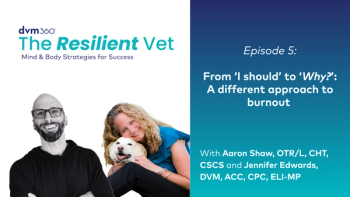
Your Wealth Goes Well Beyond Financial Capital
When most people hear the word “capital” they automatically equate it to finances. However, there are at least seven other kinds of capital.
In our society, we are conditioned to protect our financial capital — money, assets, investments — and we spend a great deal of time working to achieve financial security or, even better, financial freedom. But as we’ve all heard, there is more to life than money. The same applies to capital; it’s not all about dollar signs. In fact, there are at least seven other forms of capital that are critical to creating a balanced and fulfilled life.
Living Capital
Living capital encompasses health and nutrition and can be shared, improved and expanded upon. Living capital (sometimes referred to as natural capital) is used to describe all of the environmental elements available to humans and how they create the ecosystem services we depend on, including the food we eat, water we drink, soil used to grow produce and plant materials used in medicines.
Knowledge Capital
Knowledge or intellectual capital includes everything we learn in school and through life experiences. Many times, knowledge capital is traded for financial capital — this is called tuition. For some, having a vast intellectual capital is one of the most important factors to achieving success.
Emotional Capital
Emotional capital refers to the internal attributes that help us succeed in life and manage difficult situations, including our self-esteem, agreeableness and resilience. People who lack emotional capital struggle when they face challenges. In its extreme form, this insufficiency may lead to feeling like a victim, which in turn may lead to addiction and suicide.
Spiritual Capital
Call it faith, spirituality, religion or karma, but spiritual capital helps us connect with ourselves and the universe. Spiritual capital — including a particular faith you believe in or religious group you belong to — impacts how you make decisions or respond to situations.
Social Capital
Social capital is an important asset in politics, business and communities, and is dependent on how many people we know and how deep our relationships are. We improve our social capital by cultivating our connections. Once we have a large amount of social capital, we can ask for favors, influence decisions and communicate effectively.
Human Capital
Human or “experiential” capital is a combination of social and knowledge capital and includes an individual’s intelligence, talents, motivation and abilities. As it relates to business, human capital, or the skills someone possesses to perform a task, can influence success and profitability. In turn, many business owners invest in human capital by providing continuing education or on-the-job training to increase an employee’s knowledge.
Cultural Capital
Our cultural capital is often a product of where we live and the people around us. It includes a person’s collection of skills, mannerisms and clothing, and how they are influenced by those we regularly interact with. While the previous forms of capital were mainly individual, cultural capital helps us relate to others and creates a sense of collective identity. For instance, veterinarians share a certain amount of cultural capital because of their interest in the field and shared educational experiences.
So, it is true: it’s not all about money after all. There is more to life than financial capital. Health, nutrition, happiness, knowledge, emotions and social connections contribute to our human capital.
This article was inspired by entrepreneurs Chris Martenson (Peak Prosperity) and Ethan Roland (Apple Seed Permaculture).
Dr. Phil Zeltzman is a board-certified veterinary surgeon and serial entrepreneur. His traveling surgery practice takes him all over Eastern Pennsylvania and Western New Jersey. You can visit his websites at
Newsletter
From exam room tips to practice management insights, get trusted veterinary news delivered straight to your inbox—subscribe to dvm360.





